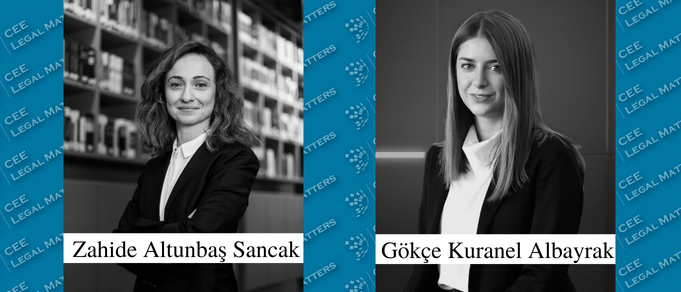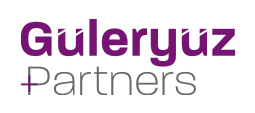In its decision dated 18.08.2018 and numbered AT.40099, the European Union Commission [the "EU Commission"] fined Google with 4.34 billion Euros for abusing its dominant position through requiring smartphone makers to take a bundle of Google apps, preventing use of other versions of Android and concluding anti-competitive revenue share agreements. The General Court [the “Court”] dismissed Google’s appeal and upheld the Commission’s decision by slightly reducing the amount of fine to 4.125 billion EUR. This was recorded as the highest penalty ever imposed by European competition authorities.
Anti-trust breaches of Google have been under spotlight of various jurisdictions including Turkey. Indeed recently, Google was sanctioned by the Turkish Competition Authority [the “TCA”] due to abuse of its dominant position. In its decision dated 08.04.2021 and numbered 21-20/248-105, the Competition Board decided that Google violated Article 6 of the Law No. 4054 on the Protection of Competition [the 'Law'] by abusing its dominant position in the market and fined Google 296 million Turkish Liras.
EU Commission Decision and Course of Relevant Events
In 2013, an initiative called Fairsearch, which consists of 17 companies, including Nokia, Microsoft and Oracle, filed a complaint against Google to the Commission. Fairsearch claimed that it was unfair for Google to allow mobile device manufacturer companies to use the Android operating system for free in exchange of apps such as YouTube and Google Maps on their devices. In April 2015, the Commission launched an investigation on Google's activities related to the Android operating system. As a result of nearly three years of investigation, the Commission rendered its decision on July 18, 2018, and fined Google about 4.5 billion Euros. In its decision, the Commission established that Google dominates the market for general internet search services, licensable mobile operating systems, and app stores for Android mobile operating systems, and the restrictions imposed on Android device manufacturers and mobile network operators by abusing its dominant position are illegal under European Competition Law. In line with the Commission’s decision; (i) the obligation contained in agreements between Android manufacturers and Google consisting on imposing the pre-installation of Google search engine, (ii) the obligation to download Google's internet browser Chrome and (iii) to enter the Play Store to download the application it brought to the users, (iv) the restrictions consisting on giving financial incentives to mobile device manufacturers and mobile phone service providers to offer Google's search engine as their only option, and (v) preventing manufacturers from selling devices running competing operating systems based on Android's open source codes, are in violation of Article 102 of the European Union’s Treaty of Functioning. In addition to the fine, the Commission also ordered Google to effectively end the violations within 90 days of notification of the decision and refrain from any act or behavior that had the same or equivalent effect. It is also stated that in case of non-compliance with the decision, additional fines would be imposed. Google then applied to the Court against the decision.
The Court had revised the decision of the EU Commission and confirmed most points highlighted in the Commission’s decision. According to the Court, Google had imposed anticompetitive contractual restrictions on mobile phone makers and on mobile network operators since 2011 and required mobile phone makers to pre-install its search engine and web browser to be able to use the Play Store through its distribution agreements. It is also mentioned that Google anti-competitively prevented use of a version of the Android other than the official one and otherwise, mobile phone makers would lose the operating license for the pre-installation of Google Search and Play Store apps in line with the anti-fragmentation agreements. However, the Court did not confirm that Google’s revenue share agreements, which gives a stake of Google’s advertising income to phone makers and mobile network operators provided that they would not pre-install its rivals’ search engines on their devices, are anticompetitive as found in the Commission’s decision and concluded that such agreements are not abusive. In the light of the conclusions of the Court, the fine to be applied on Google had been lowered to 4.125 billion Euros, with a mere 4% reduction.
Google could appeal the Court’s decision to the European Court of Justice, but only on points of law. The timeframe for such an appeal is two months and ten days. It is still not clear whether Google will follow-up next steps regarding this case.
Decision of the Turkish Competition Board on the Subject
Google’s anti-competitive practices were brought to the attention of the TCA and the Competition Board recently, likewise the European jurisdiction. In a recent case, the company Yelp claimed that Google put its own services ahead of other companies in terms of providing services in relation to general search and accommodation price inquiries. The Competition Board launched an investigation against Google as a result of its preliminary research. The Competition Board later established its final decision on April 8, 2021 and fined Google 296 million Turkish Liras.
In its decision, the Competition Board first determined that Google dominated the general search services market. As a result of its on-site inspections, the Competition Board established that Google's search results page offers its own local search service and accommodation price comparison service by increasing intensity in the most competitive and most valuable parts, which makes the activities of its competitors in these markets difficult. It was also stated that Google did not allow its competitors to enter the market of local search services, causing its competitors to be in a disadvantageous position both in terms of location and appearance.
Based on the foregoing grounds, the Competition Board imposed an administrative fine on Google and, in addition, decided that within six months, Google should provide its competitors with conditions where they would not be disadvantaged by their respective services in order to end the violation and ensure effective competition in the market.
Conclusion
Over the past decade, Google’s behavior in different markets has been subject to investigations of various competition authorities. In such processes conducted by the EU Commission and the TCA, the restrictive effects of its behavior on competition were examined, emphasizing that Google is dominant in different markets. Beside the latest record fine largely upheld by the Court underlined above, in two other investigations carried out by the EU Commission against Google, Google was found in violation of its dominant position, and EU authorities imposed an 8.2 billion EUR fine in total on Google within the last decade. Moreover, various examinations are still being conducted against Google both by the EU Commission and by competition authorities of various jurisdictions. Due to its dominant role in many markets and the fact that it causes decisions that affect the perspective of competition authorities on new generation applications, Google is followed with interest by competition authorities as well as many industry players.
By Zahide Altunbas Sancak, Partner, and Gokce Kuranel Albayrak, Senior Associate, Guleryuz & Partners


